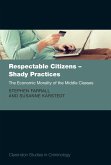Security has become one of the most important aspects of sport mega-event organisation. This book explores how Rio de Janeiro was imagined and transformed into a security fortress when the 2014 Men's World Cup and the 2016 Olympics came to the city and how the fortress was nonetheless permeable and porous. Dennis Pauschinger experienced exceptional backstage access at high level in the Brazilian mega-event security architecture as well as at street level with the local public security sphere. His ethnographic account takes us from the hidden world of surveillance and control centres, to the security perimeters around stadiums, and to the mundane routine of police officers during day and night shifts at local police stations or at the Special Forces' headquarters. This book shows how police officers' emotions and Special Forces' war narratives impact the static and technology-based security models at mega-events and how traditional patterns of police work, along lines of class and racial inequalities, still prevail and shape the city's public security. The book argues against the common narrative of the positive impacts of mega-event security legacies upon host cities by advancing towards a general understanding of how security governance is carried out in places where the use of digital security technologies co-exists with overly lethal and repressive forms of policing.
Dieser Download kann aus rechtlichen Gründen nur mit Rechnungsadresse in A, B, BG, CY, CZ, D, DK, EW, E, FIN, F, GR, HR, H, IRL, I, LT, L, LR, M, NL, PL, P, R, S, SLO, SK ausgeliefert werden.









